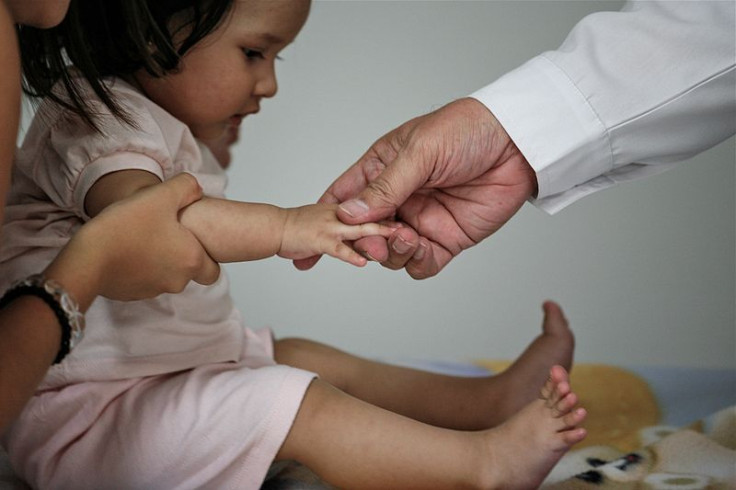Fever Reducers Do Not Affect Children's Recovery Time From Infection

Fever-reducing drugs have no effect on how quickly a child recovers from an infection, a new systematic review of existing research has found.
Alison While, a professor of community nursing at King's College London and senior author of the analysis, which sought to determine whether fever reducing "antipyretic" medications, such as acetaminophen, interfered with a child's immune response to infections after they were given vaccinations, according to Reuters Health.
"There's no evidence that antipyretics slow down recovery," While said.
While and her coauthor, Edward Pursell, analyzed six clinical studies in which the effects of anti-fever medications were collected from a total of 657 children. Three studies focused on malaria and the rest included fevers associated with chickenpox and other viral infections.
They found that antipyretics had little to no impact on recovery time. Children who were given fever reducers returned to normal body temperature four hours before those who didn't take medication. All children recovered from their infection at about the same time.
"Many many parents are using antipyretics with small children whenever they get a slightly raised temperature. This is madness," While said.
The study brought another issue to experts' attention: parents' quickness to treat fever using medications, even though there's no evidence that supports they they work.
"Fever-phobia," Dr. Janice Sullivan, medical director of the Kosair Charities Pediatric Clinical Research Unit at the University of Louisville, described the phenomena to Reuters. "This great fear that fever is such a horrible thing for their child."
"The bottom line is this: You never want to give your child a drug that they don't truly need because all drugs, even if you can buy them over the counter have a potential for side effects," she said.
She suggested using medication only when a child complains about aches and joint pain, saying that other than those reasons, a fever will limit itself.
The author of the malaria studies, Dr. Peter Kremsner, suggested that parents shouldn't even worry about the fever.
"A true fever, caused by an infectious agent is never harmful; there's no reason why one should lower the temperature during infection," he said.
Sources:
While, A, Pursell, E. Does the Use of Antipyretics in Children Who Have Acute Infections Prolong Febrile Illness? A Systematic Review and Meta-Analysis. The Journal of Pediatrics. May 2013.
Published by Medicaldaily.com



























